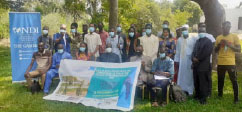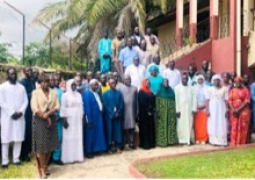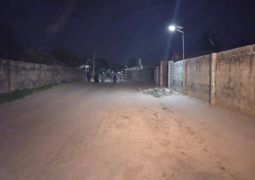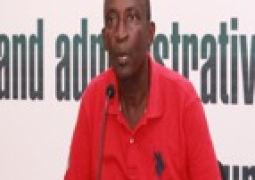
It could be recalled that the government of The Gambia signed the Access To Information Act on 18th August, 2021. This initiative supported by National Democracy Institute seeks to ensure that The Gambia qualifies to become a member of the Open Government Partnership Initiative, which is a global-link organisation working around openness, transparency and accountability.
At the event, Abdoulie Jadama, head of programmes, Open Society Platform- The Gambia said the country is now 2.0 away to becoming a member of the Open Government Partnership
Emily Touray, member of the Media Council of The Gambia outlined that the document is not just a blueprint but needs to be operationalised to ensure necessary strategies are put in place for it not to gather dust in the shelf.
“It is important for Civil Society work with government and other players to operationalise the document. If the document is operationalized, it will serve the public good and it will go a long way in enlightening the democratic spaces well.”
Civil Societies, he said, should come together and have a critical meeting where they will look at and develop strategies on how to operationalise the documents.
“We need to work to making sure that we go to the grassroots to popularise the document.”
He thus encouraged CSOs and Open Society Platform of The Gambia to develop smart messages in local languages and air it over both community and commercial radios for the local people to know about the existence of the document.
Kadijah Bokum, a journalist and a presenter at The Gambia Radio and Television Services (GRTS) noted that credible information is vital for any democracy and good governance.
Access to information, she added, is a key element in any democratic society as it enables citizens to exercise their rights, hold the government accountable and monitor the activities.
“As journalists this is one of the things that enable us to make their job easier and to be able to get the right information to inform the citizens of what is happening. We cannot inform the citizens if we do not have the right information.”
Raymond Osewbagdon, resident coordinator of National Democracy Institute said the bill would no doubt stimulate public engagements using the law as a tool to enhance good governance in the country and to bridge the information gap between the government and the citizens.
“The bill is a tool that will fight anti-corruption and protect the rights of citizens.”
“Having the law is a step but the operationalization of the law is another step.” he said.
He indicated that one of the most important things is to review the bill to identify the positive, strength, opportunities and existing gaps and then make concrete recommendations on how to make the law effective.
“Democracy is about creating spaces and voices for citizens to engage in and to promote good governance.”





